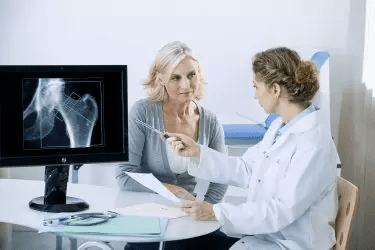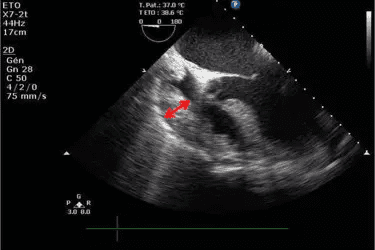
2D Echocardiography
The heart is a two-stage electrical pump that circulates blood throughout the body. The anatomy includes four chambers and four valves. For the heart to function normally these structures need to be intact and the heart muscle needs to beat in a coordinated fashion, so that blood flows in and out of each chamber in the proper direction.
The arteries carrying blood to the heart get clogged with time due to the high levels of lipids in the blood and also due to lifestyle habits like smoking, drinking, obesity, and a less active lifestyle. Once the blockage in the artery reaches 60-70% then the chances of heart attack increase. The heart muscle becomes fatty with time and its capacity to pump blood decreases.
Echocardiography is the most common noninvasive test for the health of your heart. It gives vital information about the condition of your arteries and also about the capacity of your heart to pump blood each time it beats.
Preparation For The Test
Other than wearing loose-fitting clothing, there are no special restrictions or preparation prior to a 2D Doppler echocardiogram.
During the echocardiogram a gel-like material is applied to your chest. Although the gel is water-soluble and should not stain; it is messy and could get on your clothing so please be aware and dress appropriately.
Test Results
The purpose of the echocardiogram is to assess the structure and function of the heart. The results will provide information that can help the health care professional make a diagnosis that involves the heart.
Echocardiograms may be repeated over time, monitoring heart function and the results may help decide whether the previous treatment has been effective and whether any changes in that treatment program are required.


Uses Of Echocardiography
Echoccardiography can detect many heart problems. Some might be minor and pose no risk to you. Others can be signs of serious heart disease or other heart conditions. Echocardiography at Vardhman Hospital is done to find the following things:
- The size of your heart - An enlarged heart might be the result of high blood pressure, leaky heart valves, or heart failure. Echo can also detect the increased thickness of the ventricles (the heart's lower chambers).
- Heart muscles that are weak - and aren't pumping well. Damage from a heart attack may cause weak areas of the heart muscle. Weakening also might mean that the area isn't getting enough blood supply, a sign of coronary heart disease.
- Heart valve problems- Echo can show whether any of your heart valves don't open normally or close tightly.
- Problems with your heart's structure -Echo can detect congenital heart defects, such as holes in the heart. Congenital heart defects are structural problems present at birth. Infants and children may have echo to detect these heart defects.
- Blood clots or tumors- If you've had a stroke, you may have to get an echo to check for blood clots or tumors that could have caused the stroke.
Hearts Checkups
An echocardiogram (echo) is a graphic outline of the heart's movement. During an echo test, ultrasound (high-frequency sound waves) from a hand-held probe which is placed on your chest provides pictures of the heart's valves and chambers and helps the cardiologist to evaluate the pumping action of the heart. Echo is often combined with Doppler ultrasound and color Doppler to evaluate blood flow across the heart's valves.
The test is used to:
- Assess the overall function of your heart
- Determine the presence of many types of heart disease, such as valve disease, myocardial disease, pericardial disease, infective endocarditis, Cardiac mass, and congenital heart disease.
- Follow the progress of valve disease over time.
- Evaluate the effectiveness of your medical or surgical treatments.

